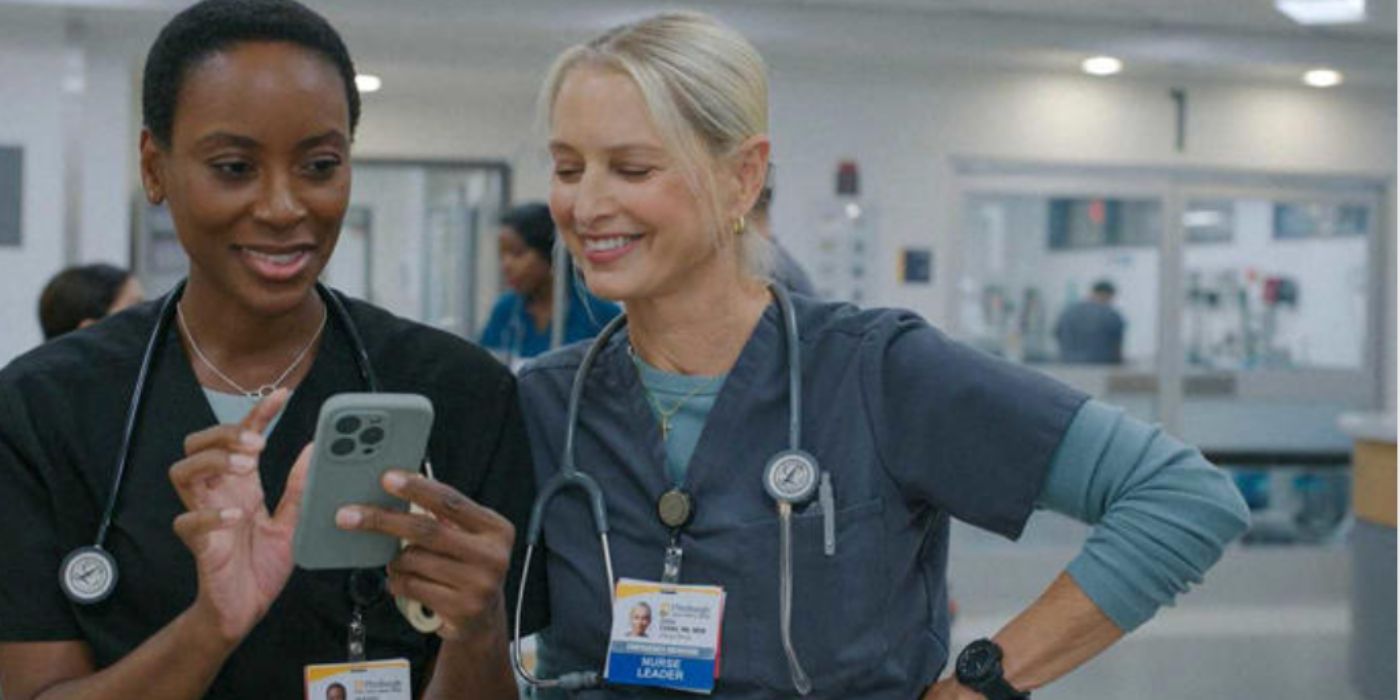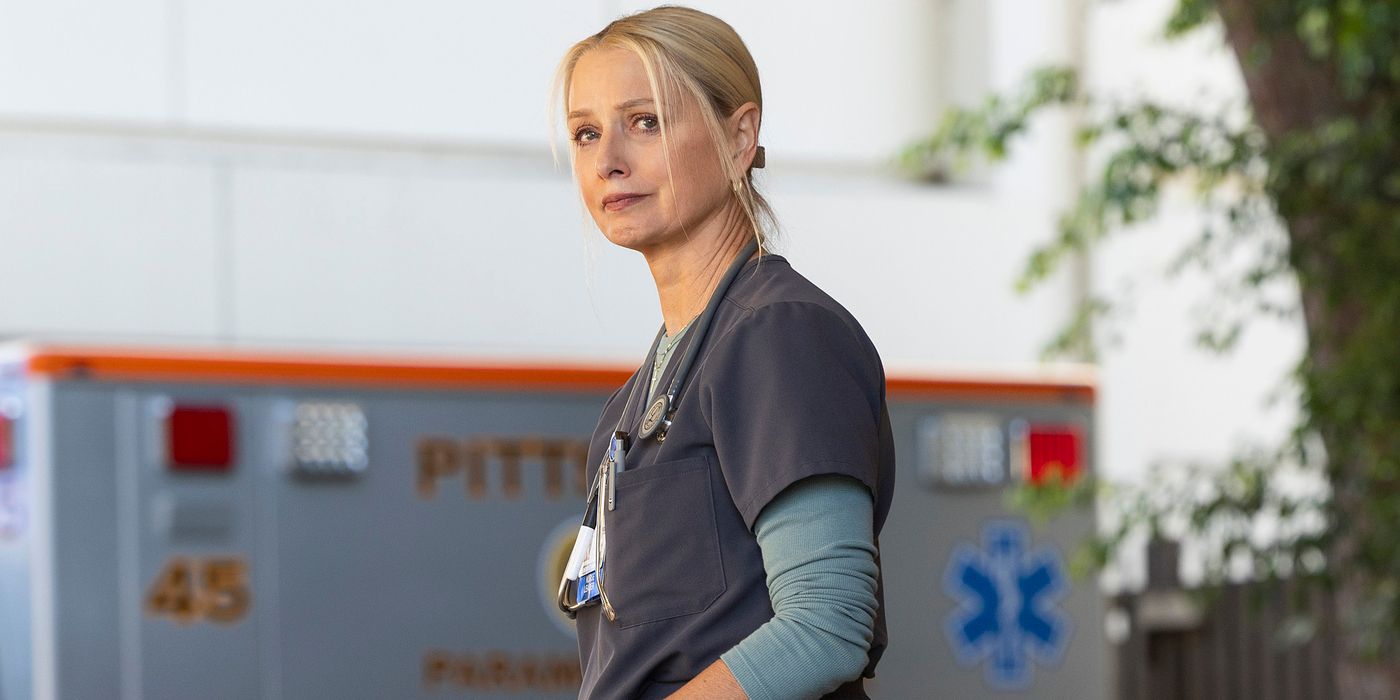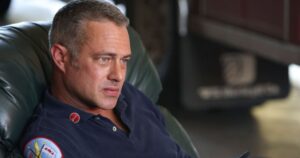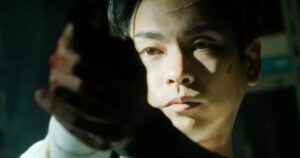‘The Pitt’s Katherine LaNasa Breaks Down the Finale and Where Nurse Dana Goes From Here
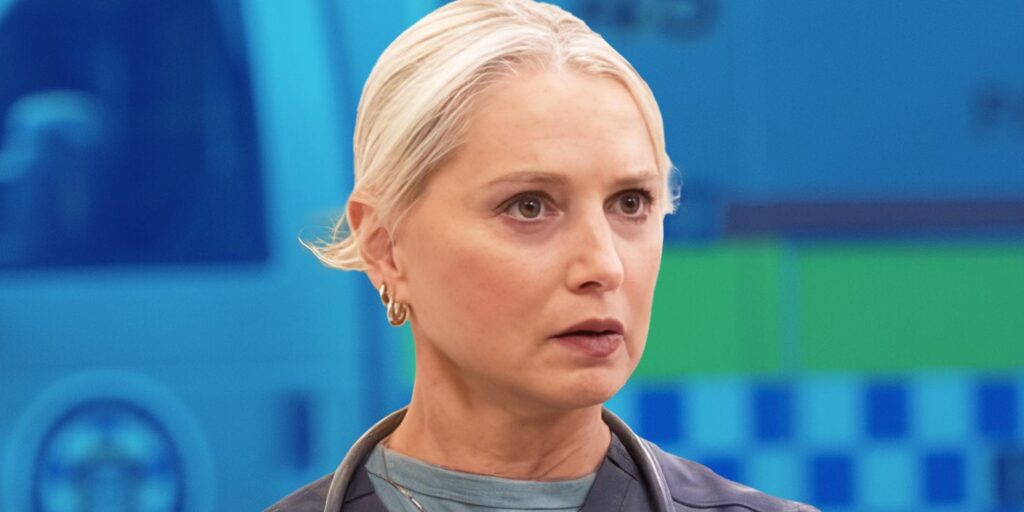
Editor’s note: The below interview contains spoilers for The Pitt finale.
Every once in a while, a TV show comes along that resonates with those of us watching from our couches (or devices, or however you tune in) week after week. Perhaps no one could have predicted that when The Pitt first premiered, it would become not just a major streaming hit but a show that viewers felt compelled to tune in for. The Max original series, created by R. Scott Gemmill and starring Noah Wyle, follows the overworked and understaffed doctors and nurses of the Pittsburgh Trauma Medical Hospital, specifically those who work in the high-stakes emergency room. As the story unfolds in real time, with each hour of the season corresponding to an hour of the day staff’s shift, viewers earn a front seat to everything that happens, from everyday accidents to major mass-casualty events.
Ahead of this week’s episode, which wraps up The Pitt‘s first season, Collider had the opportunity to speak with Katherine LaNasa, who plays the E.R.’s head charge nurse (and arguably fan-favorite character) Dana Evans, about her experience working on the smash-hit series. Over the course of the interview, which you can read below, LaNasa discusses why she wanted to nail the Pittsburgh accent, the extensive backstory she created alongside The Pitt‘s writers for her character, and why being punched in Episode 9 sets off an existential crisis for Dana that carries through the remainder of the season. She also reveals what it was like to work with an entirely new team of extras for the mass-casualty three-parter, whether Dana will actually leave the Pitt for good, and more.
COLLIDER: I’ve seen so many people compliment your Pittsburgh accent on this show, and I’m assuming it took some work to get that right.
KATHERINE LANASA: A lot of tears! When I auditioned, I wanted her to sound of a certain class, of a certain age, and from the East Coast. So it was a very quick turnaround. Usually with auditions, they give you a couple of days, if you’re lucky, so I did something sort of vaguely East Coast. But I’m from Louisiana, and people get our accent wrong all the time. There’s a certain show on TV right now where the guy is supposed to be from Atlanta, and he sounds like a Cajun. It’s like, “Any old southern accent will do!” So, I wanted to honor the people of Pittsburgh by at least trying to do their accent.
But I gotta tell you, I got into that how I do everything. I do everything to the nth degree. I’m very detail-oriented. I really thought, “What am I doing?” Most actors would just let this be, just do the regular accent, and just leave it be. But I really felt like I should do it. My acting coach, Martha Gaiman, who I work with on everything and I’ve worked with forever now, and she’s now the creative director of the Actors Studio, she was like, “Katherine, if you were playing this person in a play, would you think for a second about doing it without an accent?” I’m like, “No.” And she was like, “So just keep going.” But it was very hard.
East Coast accents don’t come that easily to me. But I did learn a Polish accent for Imposters, and so it helped me conquer my fears in terms of accents. You can kind of break it down into sounds, and almost break each word down. But there’s a lot of musculature. It’s almost like muscle memory in your mouth. That really takes time. What I did was I started to watch shows with good Pennsylvania accents. One of them was Mare of Easttown, and it’s a different accent, but I thought, at least, I could hear this and get in the ballpark. I was in my bathtub, and I had let it run on my iPad or something, and all of a sudden, the actress started talking about the accent, and then the dialect coach came on. So I reached out to her, and she put me in touch with Suzanne Selby, who did pretty much everybody but Kate [Winslet] on that show. She’s from Pennsylvania. I really give her all the credit. She didn’t walk in the woods with a mask on so no one could see her mouth move. [Laughs] I just looked like I was talking to myself all the time. I took a lot of hikes, and I would just say the lines over and over again.
I got to work, and we had to go a couple of weeks early for doctor school, and I didn’t tell anyone I was doing it. I’d done East Coast, but I didn’t announce it because I didn’t want too much focus on it. I thought, “I’ve got two more weeks. I’ll be fine.” And then John Wells decided to have an early table read when we first got there, and I was like, “Oh no!” So I just kind of was quiet. But honestly, I take that as probably the biggest compliment I’ve gotten.
One of the things that I really enjoy about this show is that it doles out details about these characters over the course of this shift. You’re not having to do this big backstory infodump right at the top of the first episode.
LANASA: French Stewart and I used to call it “Little Timmy.” “Remember, Little Timmy, after the war, when you went to live with your grandmother, had that crazy dog, and you broke her arm in the tree, and that old man came around.” [Laughs]
Katherine LaNasa Came Up With Her Own Backstory for ‘The Pitt’s Nurse Dana
Taylor [Dearden] and Fiona [Dourif] have both said that before you started filming, they got a crash course in information about your character. Did you have similar conversations with Scott [Gemmill] and John so that you weren’t just having to fill in those details for yourself?
LANASA: It’s funny. We had two weeks of doctor school, and during that time, on the first day, they took three people in and told them all about the characters. Then the next day, they took some more people. They never took me! I’m like, “When am I gonna learn? We already started, guys!” Literally, it was the day before we started shooting, and thank God we were on the same page. I had thought that she had a father who had died when she was young. They had her have a mother who died. Somewhere, I like to think that the actress’ subconscious and the writers’ subconscious hooked up. But they had that [Dana] had lost her mother very young, at 16, and then she went to work and started volunteering in the hospital in high school — we learn that in one of the episodes. She had three daughters. I had thought that Dana had a few children, and I thought that one of them was kind of risky, one of them was tricky, and they refer to that in the one scene with Collins in the pilot. I think that might have even come out of our conversation.
Her husband’s an electrician, and she’s been with him a long time. He’s very grounding. She had a period of wildness. I also made up that she had a sabbatical — I felt like maybe she tried to bury her feelings in the hospital, and, at some point, couldn’t take it. I have this idea that even though she’s Catholic, she went on this spiritual journey in Asia. I have two tattoos in the show. One is from the patron saint of nurses, and it says, “Live holy, the present moment.” Then the other is a quote, and it’s written in Vietnamese on my arm, and it looks like henna or a scar. It says, “In order to heal the future, we must heal the present moment.” We incorporated those into her. We made up these tattoos. They made them for me. That was all kind of part of it.
I have an aunt, and her son wrote me. He used to be in the Special Forces, but he’s actually an E.R. doctor now, and I didn’t even know that. His mother is kind of who I loosely based Dana on. I had an aunt who was the youngest of eight. There were things that I could relate from my own family that felt right for Dana’s family. I’m from a big Catholic family from New Orleans. This is a big Catholic family from Pittsburgh. I’m Italian, they have a lot of Italians. They just have a vibe. They both have a strong accent, and a lot of city pride. My Aunt Andre was just the youngest of my mother’s generation, so she was only a few years older than us, so all the cousins would follow her around. My grandmother had a yellow car with a brown hard top in the ‘70s, and I remember my aunt telling her, “I’m not driving that bruised banana, woman.” [Laughs] She was just a toughie, and I just imagined Dana would be like her — sort of sexy and tough, but just a bit of a tomboy and a lot of confidence.
That’s who she started out as, but it’s interesting because my aunt is pretty serious now and responsible, and all those things — the opposite of how I knew her as a teenager. So, something in my instincts, I guess, felt like, “Oh, [Dana] is a lot like Andre.” A lot of inner strength in there, but also a lot of grief.
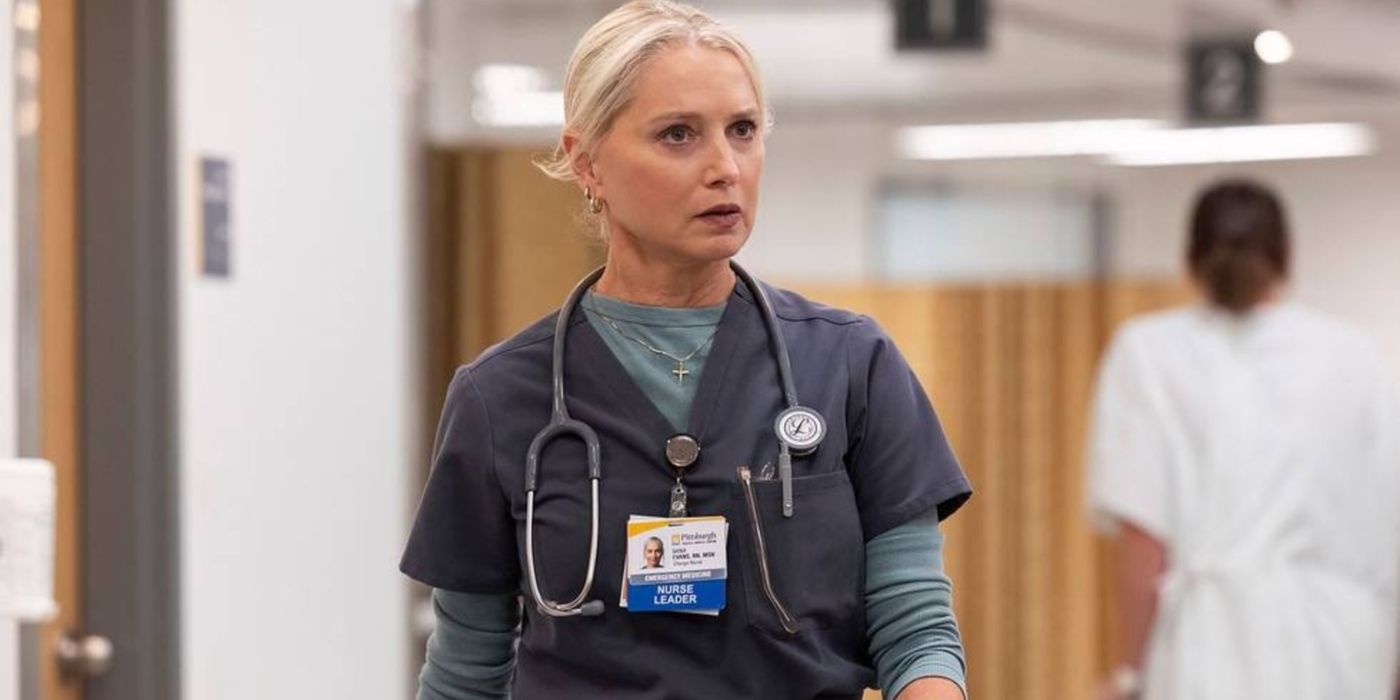
Related
‘The Pitt’s Latest Episode Ended With a Violent Plot Twist, but It Happens Way More Than You Think
It’s not over dramatic, it’s a sad reality.
Talking about Dana’s grief, at the beginning, she feels like a character who’s in charge — not just because she’s the charge nurse, either — but Episode 9 marks a big turning point for her. When she’s attacked by the patient, it’s a moment that’s both shocking and has been built up to. When were you told about how this storyline would play out? As we see, it starts to steer Dana towards thinking about whether she really wants to do this anymore.
LANASA: It really came through the makeup department. They were like, “You’re going to have a black eye, and we need to test that on you. You’re going to have a black eye at this time, and you’re going to have a black eye for the rest of the show.” As if I didn’t look bad enough, I said, “I hope this is a hint, because if not, I’m never going to work.” Because I played a lot of glamorous parts before this, so it was good to wrap my mind around it.
But honestly, I trust them so much. I trust Scott Gemmill so much. He’s such a master writer. You even remarked on something — it’s just little breadcrumbs. He isn’t doing this big “Little Timmy” dump, this big exposition dump about your past. This has got a great structure to it, and I kind of like to just trust. I’ve been doing this so long that I don’t worry too much about what’s going on episode by episode with me. I’m not counting my lines. I’m not counting how many scenes I’m in. In general, I’m working with really good people. I just try to do good work and trust that it’s going to work out for me. So, I was actually really excited about whatever it was going to be.
I also had gone down to the county hospital and shadowed a charge nurse there that I’m loosely based on, named Kathy Garvin. She confirmed that, yeah, they get punched and kicked and [are] in the line of fire all the time. One of the things that’s sad about the edit of [Episode] 12 is that they ran out of time, but there was a lot more to Dana’s speech at the end. When she says, “I’ve been punched, I’ve been hit, I’ve been spit at, kicked on, even had feces thrown at me…” It’s this whole thing, but then it doesn’t cut right to when she says, “I think I’m done.” She says, “But that guy today, that was different. That guy wasn’t high or drunk or suffering a mental health crisis. He was just angry.” And that’s that kind of, “What am I doing? When am I going to save myself? We’re just fodder. We’re just out there.” They even cut that part where she says, “We’re just trying to help, doing the best we can.” That’s the longer part of that line.
It’s this feeling of, I don’t know… despair. I think there was a difference, and it had been delineated in the writing. Having those things done to you by someone that’s incapacitated, high, fucked up, in some kind of trauma or distress, you understand, but this guy was just angry. I also feel like he’s an exaggerated version of the worst side of ourselves when we feel entitled and impatient, and we think we’re seeing the whole picture, but maybe we’re not seeing the whole picture. It’s illuminating the pressure that the E.R. department is under because that’s what’s going on in the whole show, right? They don’t get any relief. They can’t send people upstairs.
Katherine LaNasa Explains Why Dana Reaches Her Breaking Point in ‘The Pitt’
Episode 11 is when Dana and Dr. Robby have the conversation where she says, “I think I’m done,” but we know, as viewers, there are four more hours left in this shift. There are 15 episodes this season, and you don’t know why, at the time. How is it going to be extended?
LANASA: I felt that that punch just set off an existential crisis for her. I feel like he took her dignity, and he took her place from her. To get punched by somebody that’s a wreck can be heroic, but to get punched by this guy because you’re just sort of fodder for his emotions, that’s another story. As a woman, too, I always try to put myself right in the shoes of the character, but how do you go home and say, “I’m going back there,” to your family of women, to your daughters, to your granddaughter? How do you do that?
There’s a picture of [Dana’s] granddaughter on her desk. It’s my actual daughter, but she should be my granddaughter. [Laughs] I had just brought that, and they ended up using it on set. I said I wanted those family pictures there, and then it was Damian [Marcano] who decided to shoot that. He just put that in there. It wasn’t in the script, me looking at them. So, that’s what’s weighing on her through a lot of it. “How do I represent how to take care of yourself? How can I come back here?”
Right when she’s having that moment is when the E.R. gets word that something’s happened at Pitt Fest, and it has to be all hands on deck. It does feel like Dana’s able to really shift into crisis mode. Even in the midst of everything else going on, she puts the vest on.
LANASA: She’s not leaving the scene of the crime, you know what I’m saying? She’s not leaving the scene of the crime when there’s a tragedy, when she’s needed. That’s an emotional, spiritual decision that doesn’t need to be made in the next 90 minutes. I think she can definitely stay there and try to save these people. There are two doctors out, as far as she knows, before Langdon shows back up.
This storyline starts in Episode 12 and then carries over through 13 and 14. Watching it, it feels like all of you are running the gauntlet — physically, emotionally, just non-stop movement. I know that you have a dance background. Were you trying to rehearse any of those sequences ahead of time, or was there room for improvisation?
LANASA: Our background actors are such a huge part of the show, so I don’t even know how many people we let go, because that was the end of their shift. We had let go maybe 50 people that had been working with us every day for months and months and months and had the gurneys down and everything down. We probably had 50 new background players, and they don’t know how to work those gurneys. They’re just not used to the flow, and they’re not used to us. It was a lot. It was a lot on everybody to keep that running smoothly. The gurneys are not easy to work, especially if you don’t know how, and they were supposed to be moving very quickly.
They don’t need us to be really neat. They don’t want the product to look super neat. They want it to feel real. I don’t want to say like a documentary because documentaries are always like, “This is the subject that we’re shooting.” They want to feel like you’re inside it. That’s what John said to us from the beginning. I think the messiness is OK, but I don’t think they want us to really run into each other. [Laughs] It was kind of intense, to be honest with you, but it was mostly just for technical reasons. The trauma scenes are highly choreographed, or when you’re dealing with a patient, when multiple people are dealing with a patient, whether you’re bagging or squeezing blood in, or trying to insert a tube, it’s a whole choreography. We get that choreography usually at least a scene before. We’re rehearsing that while they’re shooting the scene before, so we all have our little choreography that we know we’re getting into.
Katherine LaNasa Reflects on Her Final Scene in ‘The Pitt’ Season 1
The final conversation between Dana and Robby doesn’t feel like a goodbye. It’s emotional, with the two of you standing there looking at the wall of photographs. He even says, as she walks out, “See you Monday.” Do you feel like, deep down, Dana loves her job too much — maybe she just needs a self-care day, or a self-care week, to reset and come back? Where do we leave off with her in this finale?
LANASA: To be honest with you, I don’t think Dana knows. I don’t know how much of it translates because it’s hard to see oneself, but it was a big deal to go through that. I felt like I was kind of living in an existential crisis place, particularly for [Episodes] 9, 10, and 11, where I was on the forefront of that storyline. Like the character, I’m distracted. Dana hasn’t wanted to go home. They keep trying to send her home, and she hasn’t wanted to go home, because when she goes home, she has to face the fact that her husband’s going to be furious and want to kill the guy that did it. She has to face telling her daughters.
Dana has gotten her whole sense of herself from working at the hospital. I think working at the hospital saved her after her mother died. It’s just been 30 years of being away, not dealing with probably even the trauma of her mother’s death. There’s so much to unpack in going home. That was my truth when I was playing that. I think it broke Dana. I just don’t think she knows, and I don’t think she’s really ready to deal with it, but she has to leave. It’s time to go. The screens go back up, and they’re back at work, and it’s a new shift, and she’s done. So, I think she’s terrified of leaving.
All episodes of The Pitt are available to stream on Max.
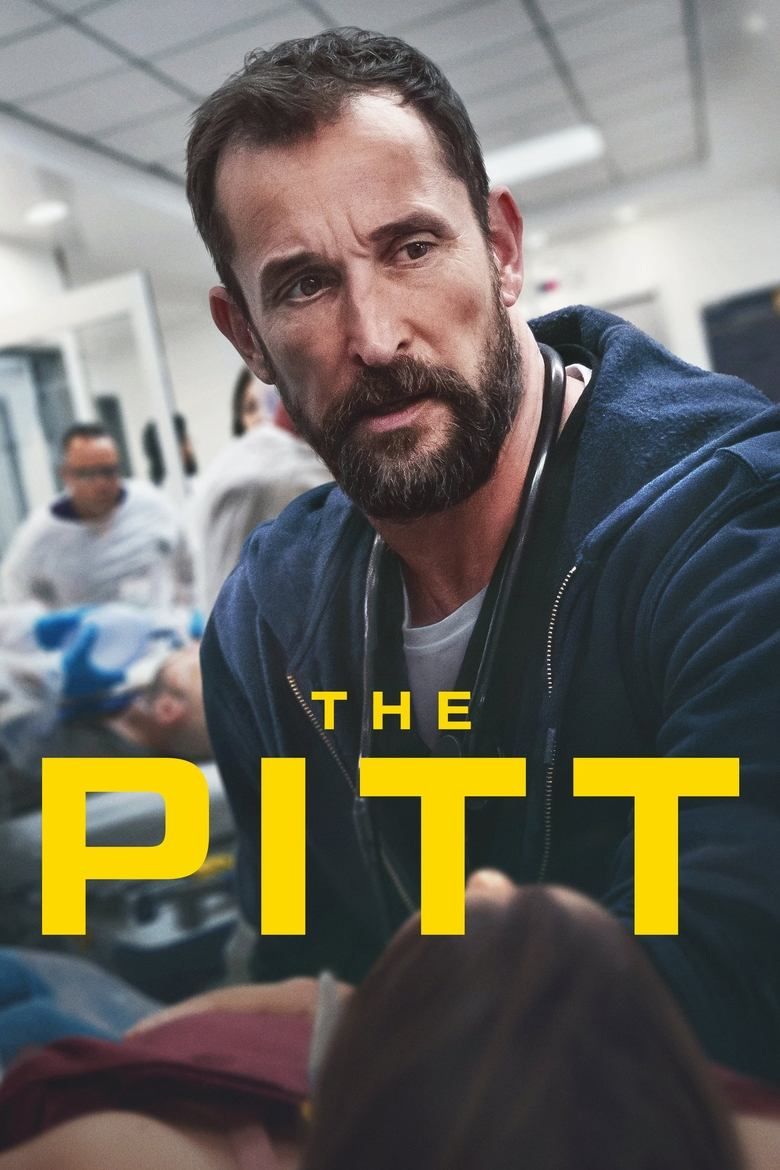
- Release Date
-
January 9, 2025
- Network
-
Max
- Showrunner
-
R. Scott Gemmill
- Directors
-
Amanda Marsalis
- Writers
-
Joe Sachs, Cynthia Adarkwa
-
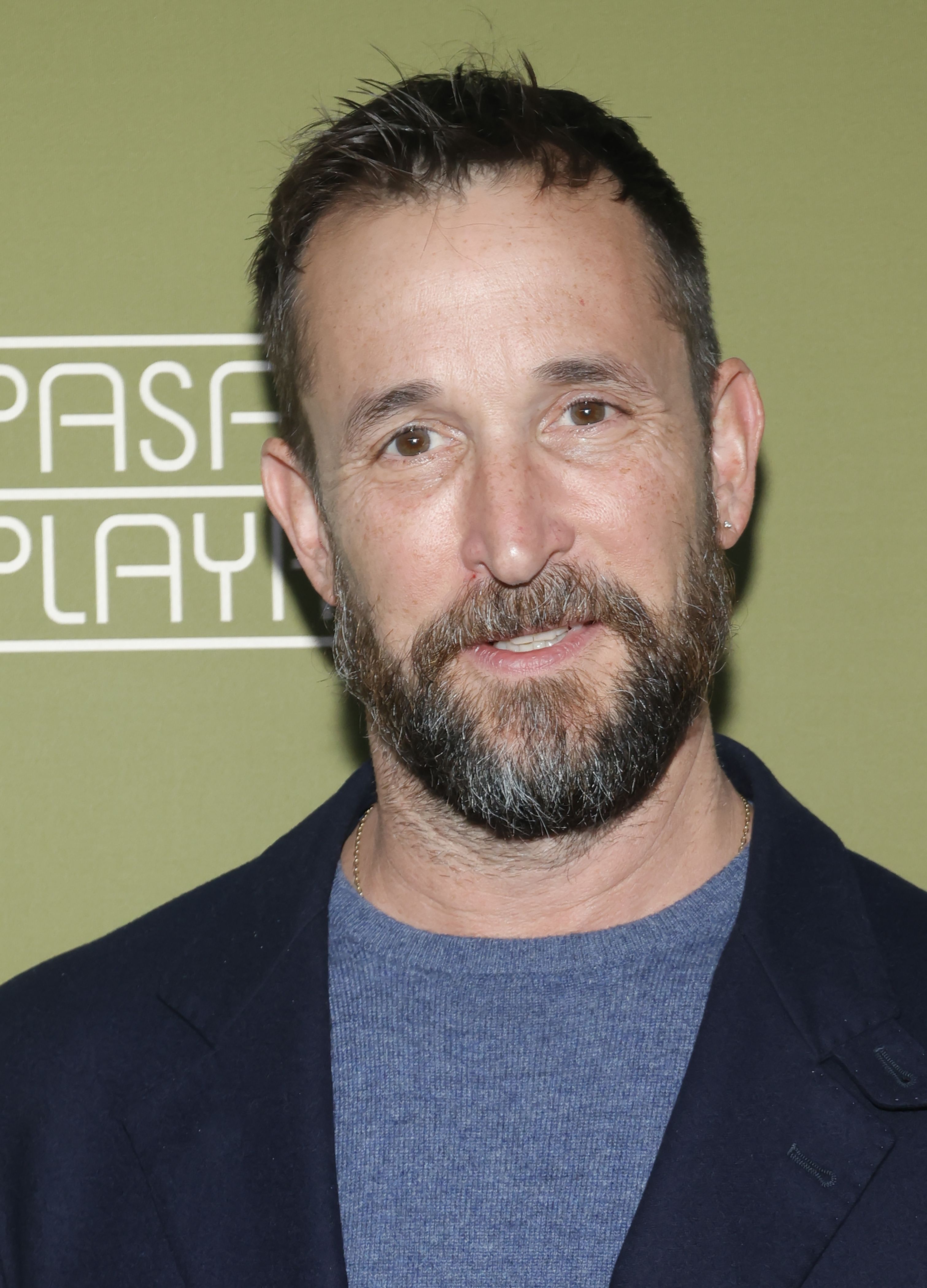
Noah Wyle
Dr. Michael ‘Robby’ Robinavitch
-

Tracy Ifeachor
Uncredited

